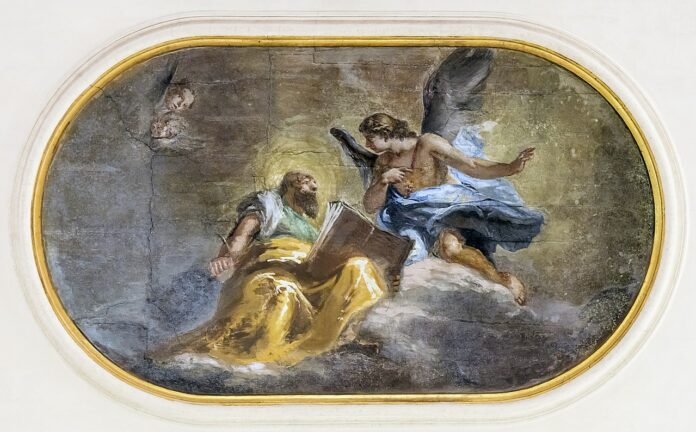For this question, it would not be possible, and possibly not helpful, to try to provide an apologetic for the reliability of “the Bible” if one was going to focus on the collection of texts itself. The Bible is too vast and too varied to be able to give one article’s worth of an answer. Usually when someone is questioning the reliability in regards to the Bible it is in reference to the historicity of a specific book or a specific story, probably a miracle story. More specifically, or at least in a Christian context, this is talking about the historical reliability of the Gospels. If one wanted to focus this question even more narrowly, one could make it about the historical, bodily Resurrection of Jesus. This is the keystone of reliability for the Bible and Christianity (see 1 Cor 15:14 and my answer to Sundell’s Question 9).
All of these issues have been more than thoroughly addressed in lengthier, more academically rigorous places than here. The angle I want to take will focus less on the historical or textual critical issues related to the reliability of the Bible and ask a more fundamental philosophical question: is it reasonable that God would reveal himself at all? While this does not comprehensively answer the “is the Bible reliable” question, it does provide a necessary foundation for one to even begin to investigate it. If the answer is no, then it really does not matter how reliable the Bible is beyond just another ancient text that may or may not provide human wisdom or powerful stories.
Christians, of course, believe the Bible to be much more than a source of human wisdom, inspirational texts and even more than historically true stories. Christians consider the Bible to be the inspired Word of God. This belief would require that God had revealed said Word to us. For this question, we can actually rely on an article of St. Thomas Aquinas’s Summa Theologiae where he discusses the “fittingness” of the Incarnation (ST III, Q 1. A 1). Briefly, fittingness is a term that refers to whether something is in accord, it fits, the nature of the subject in question. Basically, from what can be established about God’s nature, does it make sense, is it reasonable, to say God would communicate himself in a reliable way to us?
While Aquinas does not mention “the Bible” in his article, he describes why the Bible is in accord with God’s nature, which is perfect goodness, to communicate himself with others. We recognize this reality in ourselves. When we experience some good, we are moved to want to share that goodness with another in whatever way possible. It may be by simply telling the other person about the good we experienced, hoping that they will share in our joy. A greater experience though would be to share in that goodness with us.
Take a simple example like seeing a really good movie. Yes, we want to tell our friend about the movie and what we liked about it, but we would enjoy it even more if that friend had seen the movie and appreciated its goodness as well. There would be an even greater joy in sharing the experience of watching the movie together, experiencing both the goodness of the movie as well as the goodness in sharing it.
In this example, there are degrees of this communication of goodness and one can see how the greater degree of communication actually befits the greater goodness. If this is true of something that only participates in goodness, how much more true would this be of Goodness itself?
Moving back to the Aquinas article, he uses this reality about God, that he is Goodness itself, to say that it is befitting of his nature to communicate himself in the highest possible manner. This manner Aquinas considers to be the Incarnation, when God communicates his goodness through human nature. If it is reasonable that God has revealed himself in the most perfect way in the person of Jesus, then it is certainly not less reasonable that God would have also revealed himself in other ways. In fact, when talking about the sacraments, Aquinas refers to the Old Law, or the Old Testament, as a prefigurement of Christ (ST III. Q 60. A 2). If Christ is the ultimate revelation of God’s Word, then the Old Testament would also be lesser revelations.
Now, another component to the question alongside God’s communication of himself is the reliability of this communication. For this, Aquinas can also provide an indirect, but useful, answer. This concerns whether one can consider “the truth” as essential to God’s nature. If God is the source of truth, then anything that God communicates would, by definition, be true.
To show this, one must consider a couple of elements to God’s nature. The first is God’s simplicity. Briefly, this means that God’s essence is his existence (ST I. Q 3). God is not just another thing that participates in existence, but existence itself (ipsum esse). Then, consider the nature of any true statement. It is considered true to the degree it conforms to reality. You say the pen is blue and it matches that the pen is actually blue. So the truth of a statement is determined by how closely that statement reflects what actually exists. Truth is convertible with Being, or Existence. If God is existence itself then God can also be called truth itself. Aquinas also notes that one’s recognition of truth is found in the intellect, and God’s intellect is not separate from his existence, so it is accurate to say that “God is truth” (ST I. Q 16. A 5).
If God is both perfect truth and perfect goodness, then it follows that God would communicate himself with others in a way that is receivable by that party and that whatever God communicates would be true. While this does not prove historically that God has revealed himself, or even that he has revealed himself specifically to Abraham, or Moses, or the prophets, or ultimately Jesus Christ, it does show that it is reasonable to believe that God has. Once one has established the reasonability, one can then more confidently more to the historicity of specific biblical texts including the Resurrection, which is our means of passage, our “Way,” into “the Truth and the Life” (John 14:6).
Want to catch up on the previous questions? You can find parts one, two, three, four, five, six, seven, eight, and nine here!










